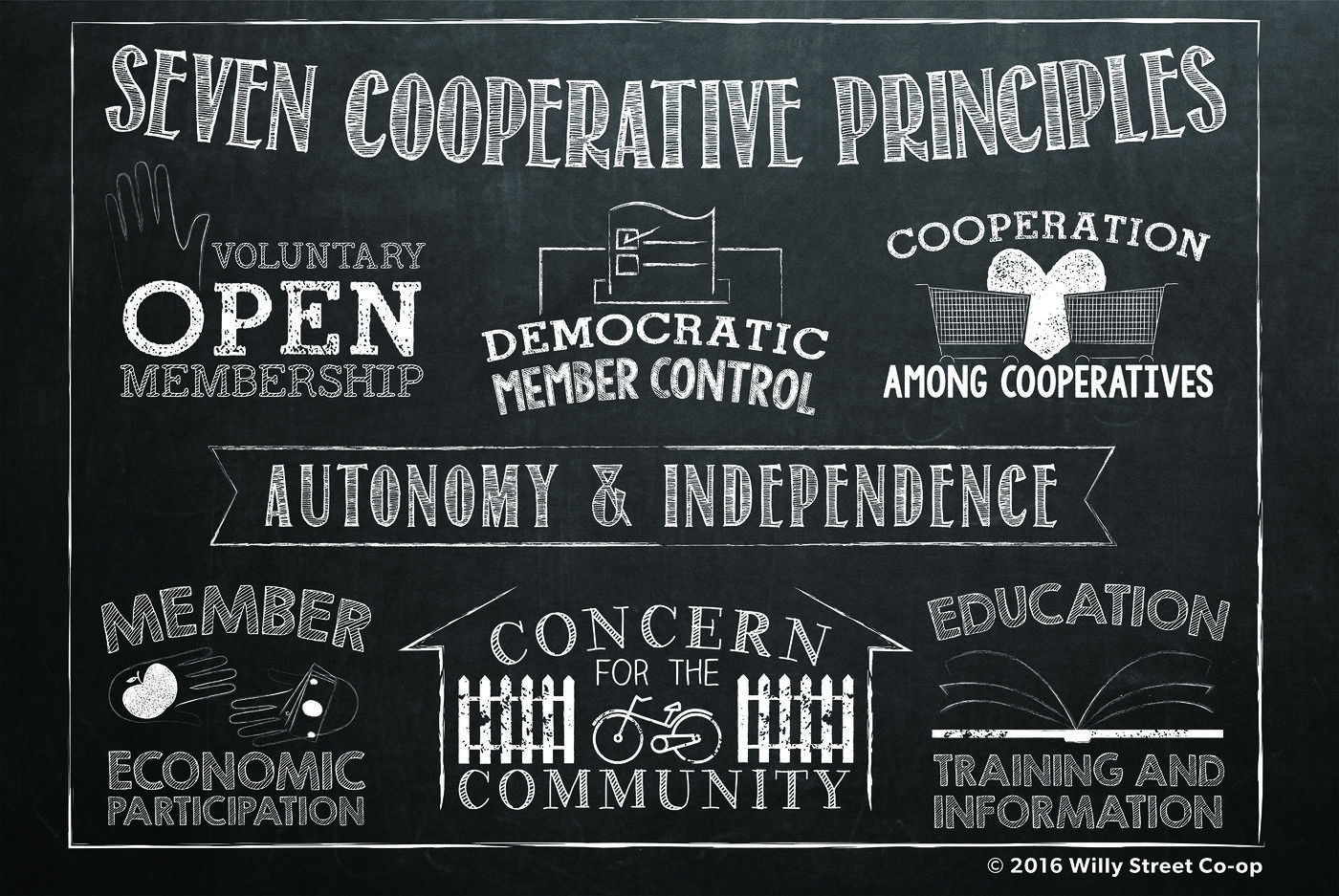WHAT IS A COOP?
The definition provided by International Co-operative Alliance is:
A cooperative is an autonomous association of persons united voluntarily to meet their common economic, social, and cultural needs and aspirations through a jointly-owned and democratically-controlled enterprise.
Cooperatives are based on the values of self-help, self-responsibility, democracy, equality, equity and solidarity. In the tradition of their founders, cooperative members believe in the ethical values of honesty, openness, social responsibility and caring for others.
That is just a definition, though. Answering this list of frequently asked questions, we want to clarify as much as possible how the cooperative model works and why it is so valuable for young entrepreneurs.
If you are interested and have more questions to ask, please find your nearest contact point and start asking!
The cooperative model is a sustainable and very resilient business form. International Labour Office (ILO) dedicated a study to “The resilience of the cooperative business model in times of crises”, check it out if you are interested in further information.
What is a cooperative?
A cooperative is a business owned and run by its members to satisfy their needs. Cooperatives are run democratically: decisions are taken according to the principle of one member = one vote.
Are cooperatives a new business model?
No, they are not.
Cooperatives have a long tradition and cooperation dates back as far as people have been organising for mutual benefit. The Rochdale Society of Equitable Pioneers, founded in 1844 in England, is usually considered the first successful cooperative enterprise, used as a model for modern cooperatives, following the “Rochdale Principles”.
How many people are members of cooperatives worldwide?
There are approximately 1 billion people who are members of cooperatives worldwide.
What are the differences between cooperatives and other forms of enterprises?
There are several differences between cooperatives and other business models.
For example there are differences in ownership: a cooperative is owned by its members whilst a traditional business is normally owned by investors. Moreover, in a cooperative, profits are normally reinvested in the business and/or returned to members while in a traditional business dividends are returned to shareholders and are considered as income. Finally, while traditional businesses’ decisions are taken according to the principle one share=one vote, cooperatives apply the principle one member = one vote: it is the person who counts no matter how much capital he/she puts into the business.
How can I start-up a cooperative?
If you have a project and would like to start a cooperative business, there is a whole European network of organisations who can assist you. Find the closest contact point in your region.
How are the cooperatives managed since there are usually many people getting involved in?
In a cooperative, the board is usually composed of members elected by members and decisions are taken according to the principle “one member – one vote”.
Are cooperatives looking after profit?
Although cooperatives want to trade successfully, profit is not the final objective but a means to satisfy member needs. Instead of rewarding outside investors, a cooperative either shares its dividends amongst the members, or reinvests it back into the business.
Are cooperatives involved in all business sectors?
Cooperatives work in all parts of the economy: from healthcare to housing, farms to pharmacies, supermarkets to sports clubs, energy to bakeries. They range in size from micro enterprises to large organisations working at the international level.
Are cooperatives successful and sustainable enterprises?
Cooperatives are more resilient in economic downturns. When other businesses may shut down or lay off workers, coop members pull together to work out solutions. The International Labour Office (ILO) dedicated a study to ‘The resilience of the cooperative business model in times of crises’. A concrete example? From 2008 to date the 300 largest cooperatives throughout the world have doubled their turnover from $1 billion to $2 billion.
Where can I ask for support? How can I learn more about cooperatives?
You are on the right website, just continue browsing and find the nearest contact point when you are ready.
What is the legal status of cooperatives?
A cooperative’s legal framework depends on the country it is formed in.
Who is going to fund a cooperative’s start up?
Banks, investors and members of the new cooperative.
How should I communicate my cooperative identity towards different kinds of stakeholders (crowdfunders, banks, employees, workers, clients, suppliers,…)?
First of all tell who you are and what your organisation is doing. You could also describe the cooperative identity of your organisation through reference to the cooperative values and principles. Remember that the most important stakeholders in coops are the members and/or the employees, and obviously, the local community.
A special cooperative identity, the coop marque, is available for authentic cooperative businesses.


